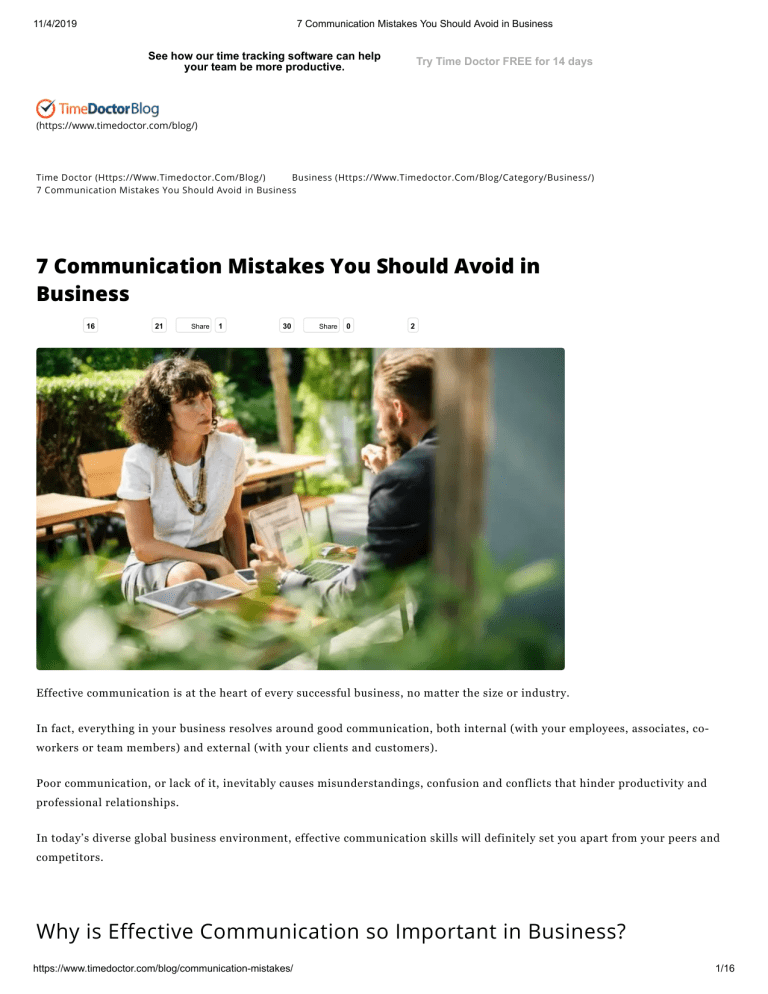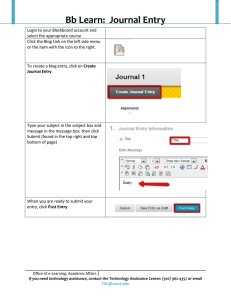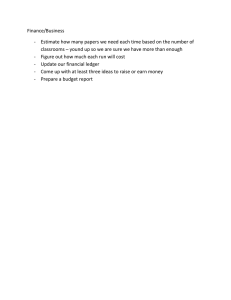
11/4/2019 7 Communication Mistakes You Should Avoid in Business See how our time tracking software can help your team be more productive. Try Time Doctor FREE for 14 days (https://www.timedoctor.com/blog/) Time Doctor (Https://Www.Timedoctor.Com/Blog/) Business (Https://Www.Timedoctor.Com/Blog/Category/Business/) 7 Communication Mistakes You Should Avoid in Business 7 Communication Mistakes You Should Avoid in Business 16 21 Share 1 30 Share 0 2 Effective communication is at the heart of every successful business, no matter the size or industry. In fact, everything in your business resolves around good communication, both internal (with your employees, associates, coworkers or team members) and external (with your clients and customers). Poor communication, or lack of it, inevitably causes misunderstandings, confusion and conflicts that hinder productivity and professional relationships. In today’s diverse global business environment, effective communication skills will definitely set you apart from your peers and competitors. Why is Effective Communication so Important in Business? https://www.timedoctor.com/blog/communication-mistakes/ 1/16 11/4/2019 7 Communication Mistakes You Should Avoid in Business See how our time tracking software can help Try Time Doctor FREE for 14 days your team be more productive. “Communication is your ticket to success, if you pay attention and learn to do it effectively.” – Theo Gold, Communication: The Communication Bible: Social Skills, Body Language, Influence & Persuasion According to the Towers Watson study, companies with high effectiveness in change management and communication are three and a half times more likely to significantly outperform their competitors than those that are not effective in these areas. So why is effective communication so vital in business? Consider the following factors: It helps to create effective brand messaging Communication is essential for creating effective brand messaging. The way your business communicates with customers (https://www.ladesk.com/blog/how-customers-expect-to-be-spoken-to-why-that-is/) (through your website, blog, social media, marketing emails, ads or customer support channels) ultimately determines how they perceive your brand. Having a clear, authentic, consistent brand voice not only helps your target audience better understand what you are selling and how it can benefit them, but also allows you to build trust with customers. Customer service relies on good communication The quality of your customer service directly depends on how good your frontline employees are when it comes to communicating with customers, both verbally and non-verbally. In fact, according to Microsoft’s 2016 Global State of Customer Service Report, 60% of consumers have stopped doing business with a brand due to a poor customer service experience. Effective communication is foundational – without it, few other aspects of a customer’s experience will actually matter. It enables positive team relationships Effective communication helps to unite teams, build a positive atmosphere in the workplace and encourage collaborative working, which leads to improved employee engagement, increased efficiency and productivity. When team leaders are truly effective communicators, they are able to maintain an open dialogue with other team members and create a safe environment for them to express their concerns, opinions and ideas without being shut-down. It helps to prevent misunderstandings and conflicts Poor communication always results in misunderstandings and conflicts. Unresolved or poorly navigated conflicts can damage and even destroy relationships with customers, employees or co-workers. Although conflicts cannot always be avoided, they can be effectively managed and resolved without negative consequences. In fact, efficient communication plays a key role in conflict management (https://www.goskills.com/ProjectManagement/Articles/Conflict-management-techniques) – it can help to defuse a potentially explosive dispute, while bad communication can set it off. 7 Worst Communication Mistakes You May be Making and How to Avoid Them https://www.timedoctor.com/blog/communication-mistakes/ 2/16 11/4/2019 7 Communication Mistakes You Should Avoid in Business See how our time tracking software can help Try Time Doctor FREE for 14 days your team be more productive. The 2016 Business Communications Survey (https://www.nextiva.com/news/2016-news-archive/business-communicationscrisis-report.html) from Nextiva revealed that 63% of business professionals experience communications-related issues with their customers, colleagues or team that stops them from achieving business goals on at least a weekly basis. A full quarter of respondents said communication issues have led to lost customers, and 13% of respondents said they lost coworkers over those issues. As these stats show, communication problems within organizations can be expensive when they lead to lost employees and customers. The following are 7 most dangerous ‘killers’ to watch out for in communication with your customers, employees and co-workers, along with some proactive strategies for preventing them. 1. Using One-Size-Fits-All Communication Approach “To effectively communicate, we must realize that we are all different in the way we perceive the world and use this understanding as a guide to our communication with others.” – Tony Robbins Communication is all about perception, that is the processing, interpreting, selecting and organizing of information. https://www.timedoctor.com/blog/communication-mistakes/ 3/16 11/4/2019 7 Communication Mistakes You Should Avoid in Business What you say is not necessarily what someone else hears, because the same message can be interpreted differently by different See how our time tracking software can help Try Time Doctor FREE for 14 days people. your team be more productive. How someone perceives your message will depend on many factors such as culture, knowledge, past experiences, stereotypes, personality, their own communication style, preferences, emotional intelligence, mindset and more. The fact is that no one else thinks and perceives the world exactly like you. When it comes to communicating your brand to your audience, a one-size-fits-all approach definitely doesn’t work anymore. According to the researchers from the London School of Economics and ESCP Europe Business School, some of the world’s most recognized brands fall into the trap of marketing their products in a global way, while ignoring cross-cultural differences in consumer psychology. That puts them at a risk of failing to win new customers from Eastern countries, as the psychology of consumers in the East is often vastly different to the West. In workplace communication this approach no longer fits as well. This is especially the case with a multi-generational workforce that currently presents a great challenge to management’s internal communications. Obviously, a seasoned professional in his sixties is not likely to consume communications in the same way that a recent college graduate does. In fact, a study from Robert Half Management Resources (https://www.roberthalf.ca/sites/roberthalf.ca/files/rhmrimages/mr_-_managers_skills_-_infogprahic_-_2-16-17.jpg) revealed that many business leaders have some real work to do when it comes to communication, with 35% of workers saying communication and diplomacy are the areas where managers need to improve most. To achieve better communication with employees, managers and leaders need to tailor their communication style to each age group. Another research by Robert Half and Enactus found that baby boomers tend to be more reserved, while Gen Xers prefer a control-and-command style. Conversely, Gen Y employees prefer a more collaborative approach to communication, and the youngest workers, Gen Z, prefer in-person interactions. 2. Speaking More and Listening Less https://www.timedoctor.com/blog/communication-mistakes/ 4/16 11/4/2019 7 Communication Mistakes You Should Avoid in Business See how our time tracking software can help your team be more productive. Try Time Doctor FREE for 14 days “Talking more than is necessary is a barrier to effective communication and effective listening.” – Clodagh Swanson Speaking and listening in a balanced way is the foundation of effective communication. However, most people tend to fall into the trap of treating conversation like a competitive sport, in which the person who speaks the most is the winner. But in reality the person who speaks least benefits most and the person who speaks most benefits least. Why is that? Take a look at some of the benefits of speaking less and listening more: You will think more before you speak You can better process what the other person is talking about You will only say what’s important You won’t say anything you’ll later regret You will have all of the facts before making a decision You can get to know others better Your customers/employees/co-workers will appreciate being listened to and understood According to the Harvard Business Review (https://hbr.org/2016/05/listening-is-an-overlooked-leadership-tool), there are 3 levels of listening: Internal listening (focused on your own thoughts, worries, and priorities) Focused listening (being able to focus on the other person, but you’re still not connecting fully to them), and 360 listening. https://www.timedoctor.com/blog/communication-mistakes/ 5/16 11/4/2019 7 Communication Mistakes You Should Avoid in Business See how our time tracking software can help Try Time Doctor 14 days The latter is what every business leader strive for. With 360 listening, you’re notFREE only for listening to what someone is saying, your team beshould more productive. but also how they’re saying it and most importantly, what they’re not saying. Listening can be a challenging skill to master. Below are some helpful tips to develop your listening skills and improve your business communications: Face the speaker and maintain eye contact Listen without distraction and interruptions Remember to use an active-listening attitude Pay attention to what isn’t said – to nonverbal cues Listen with the intent to truly understand Try to put yourself in their shoes Listen without judging the other person or mentally criticizing Wait for the speaker to pause to ask clarifying questions Avoid trying to offer an immediate solution Give the speaker consistent reactions to show you’re attentive 3. Assuming Instead of Asking More Questions “The most important thing in communication is hearing what isn’t said.” – Peter Drucker https://www.timedoctor.com/blog/communication-mistakes/ 6/16 11/4/2019 7 Communication Mistakes You Should Avoid in Business See how our time tracking software can help Try Time Doctor FREE for 14 days your team be more productive. Effective communication greatly relies on the ability to receive the messages that are being sent to you. Making quick assumptions instead of asking more questions is a huge communication mistake in business. If you need clarification to get a better understanding – simply ask for it. People are usually happy to clarify when they see you’re making the effort to fully listen. On the other side, don’t assume that everyone perfectly understood the message YOU were trying to deliver – always take the time to follow up and confirm comprehension. Some of the most successful companies and brands are those that have a deep understanding of their customers and their needs, not just from ‘big data’ analytics, but from asking questions through surveys (https://www.ladesk.com/blog/how-to-ask-yourcustomers-questions-to-get-feedback/) or focus groups, speaking with them in person, via phone, email or social media channels. When engaging with your customers, whether one on one or through your marketing communications, ask them what they expect from you, how you can improve your products or services, and how you can make their experience richer. Just in the same way, when it comes to corporate communication, very often leaders and managers run their teams on auto-pilot, assuming that they know what their employees are doing and what they are thinking. Here are some of the great examples of questions you can ask your employees to get to know and understand them better, and improve engagement: Do you know what exactly you should do to help the company meet its goals? Do you have enough information to make correct decisions about your work? How can I help you do your job better? What’s something about your job that bugs you? If there’s one thing you would change at work, what would it be? What’s the one thing holding you or the team back? Why did that mistake happen and what can be done differently next time? 4. Using Negative Tone https://www.timedoctor.com/blog/communication-mistakes/ 7/16 11/4/2019 7 Communication Mistakes You Should Avoid in Business See how our time tracking software can help your team be more productive. Try Time Doctor FREE for 14 days “10% of conflicts are due to difference in opinion. 90% are due to wrong tone of voice.” – Unknown. Tone is naturally present in all form of communication. It’s reflected in the way you phrase your message and the words you choose to use. Watching your tone is especially important in written communications, where there is no voice, facial expression and body language to convey intent or emotion behind a message. Words alone can carry a certain tone, and by choosing your words more carefully you eliminate negative reactions. Check out these 10 tips to avoid negative tone in your business communications: Be friendly but maintain an appropriate level of professionalism As much as possible, avoid using negative words Use positive phrasing to convey negative news Use antonyms to remove the word “not” Use passive voice instead of active voice to soften the tone Use non-discriminatory language Don’t break the negative news right at the start or right at the end of the conversation Focus on what can be done instead of what cannot be done Avoid long explanations, and focus on the solution In written communications always re-read before hitting send https://www.timedoctor.com/blog/communication-mistakes/ 8/16 11/4/2019 7 Communication Mistakes You Should Avoid in Business In workplace environment, avoiding negative tone when communicating with employees / co-workers can help leaders and See how our time tracking software can help Try Time Doctor FREE for 14 days managers to prevent conflicts and improve engagement. your team be more productive. Take a look at the following statement: “The project deadline is in two days. There’s still a lot to do and we don’t have much time left. I need you to put in more effort and extra hours from now on.” Now consider this one: “Our project deadline is Wednesday. I know how hard you’ve been working on it. I hope you’ll continue giving it your best to make this project a success.” While the meaning is the same, the tone makes a huge difference. 5. Avoiding Difficult Conversations “Be brave enough to start a conversation that matters.” – Margaret Wheatley Nobody likes to have tough conversations that could lead to conflict, and it might be tempting to try to avoid them. https://www.timedoctor.com/blog/communication-mistakes/ 9/16 11/4/2019 7 Communication Mistakes You Should Avoid in Business Whether it’s dealing with angry customers (https://blog.hubspot.com/service/how-to-deal-with-difficult-customers), firing See how our time tracking software can help Try Time Doctormany FREEpeople for 14 naturally days someone, giving negative feedback, apologizing for a mistake or delivering bad news, choose avoidance as your team be more productive. often as possible. However, it’s far worse to let a problem fester as it could potentially cause further damage. Learning to deal head-on with your emotions can minimize the anxiety and make difficult conversations easier to handle. How to stop avoiding difficult conversations? Here are some steps you can take: Ask yourself, what is the cost of not having the conversation? Ask yourself, what are you really trying to avoid? The other person’s reaction or your own emotional labor? Practice managing your emotions and being patient. View a tough conversation as an opportunity to do business in a better way or to be a more effective manager/ leader. Don’t assume the worst and focus on a positive outcome. How to address difficult conversations with customers: Be well prepared and stick to the facts, take responsibility. Choose the right place/ customer service cannel to have the conversation. Let your customer know right away you recognize the problem, and you’re working to make it right. Look at the situation from the customer’s viewpoint, show empathy and understanding. If necessary, apologize with sincerity (https://www.ladesk.com/blog/how-to-apologize-and-win-your-customers-over/) and without rambling. Maintain a calm and professional tone while also remaining assertive. Don’t abandon honesty in hopes of satisfying the customer’s desires. How to address difficult conversations with employees: Don’t delay – especially if the issue is having a negative impact on the team or the company. Do your homework – the more you prepare, the better the conversation should go. Set up a private meeting and think of the most suitable location in a relaxed environment. Watch your attitude and language – be positive, respectful and non-confrontational. Leave your emotions at the door so that they don’t take over and block your rational side. Make sure your criticism is always constructive and very specific. End the conversation by agreeing on clear goals with an employee. 6. Reacting, Not Responding https://www.timedoctor.com/blog/communication-mistakes/ 10/16 11/4/2019 7 Communication Mistakes You Should Avoid in Business See how our time tracking software can help your team be more productive. Try Time Doctor FREE for 14 days “When you react, you let other control you. When you respond, you are in control.” – Bohdi Sanders Reacting, instead of responding is a huge mistake in business communication, especially when dealing with angry and disappointed customers, colleagues or employees. A reaction doesn’t take into consideration long-term effects of what you say or do, and it’s very often something you’ll regret about later. Responding, on the other hand, is more thoughtful, and it’s predominantly guided by logic and reasoning. For those working in customer service (https://www.ladesk.com/tour/), it’s extremely important to be able to hold back impulsive reactions when handling frustrated customers, and knowing how to respond appropriately. What’s the difference between reacting and responding? Reaction is immediate – response takes time. Reaction is driven by the beliefs, biases, and prejudices of the unconscious mind – response is based on information from both the conscious and unconscious mind. Reaction is emotionally charged – response is the outcome of thoughtfulness, reflection, and consideration. Reaction is often aggressive – response allows for assertiveness without aggression. Reaction typically provokes more reactions – response typically provokes discussion that leads to conflict resolution. Learning how to go from reacting to responding in conflict situations will dramatically improve your business communication skills and help you handle conflicts better. https://www.timedoctor.com/blog/communication-mistakes/ 11/16 11/4/2019 7 Communication Mistakes You Should Avoid in Business They key is to practice mindful awareness that allows you to monitor your automatic reactions, so you can stop them before they See how our time tracking software can help Time Doctor FREE for 14 days become distractive. Most people have be probably heard of the old trick ofTry counting to 10 before speaking. your team more productive. While that is a rather cliché example, the basic concept is correct – instead of reacting immediately, be mindful, pause, take a deep breath, recognize the damage your reaction might do, then start to deliberately formulate a thoughtful response. 7. Not Keeping an Open Mind “Without an open-minded mind, you can never be a great success.” – Martha Stewart Finally, being close-minded can influence business communication in a negative way and even ruin your relationships with customers or employees. Closed-minded people usually spend more time talking than listening, tend to ignore opposing viewpoints and beliefs, rush to judgement and conclusions, and are generally not willing to consider new ideas and opinions. Those having an open mind, on the other hand, easily accept people from diverse backgrounds and respect their differences, understand others better, listen without judging, and consider all sides if an issue before jumping to conclusions. Benefits of being open-minded in business communication Open-minded people are better leaders, more effective communicators and collaborators. https://www.timedoctor.com/blog/communication-mistakes/ 12/16 11/4/2019 7 Communication Mistakes You Should Avoid in Business They are good listeners, have a higher tolerance level and greater patience when communicating with others. See how our time tracking software can help Try Time Doctor FREE for 14 days They can easily build trust your and teamengagement be more productive. with employees, team members and customers no matter their diversity. Being able to see things easily from different perspectives, they are better problem solvers and decision-makers in conflict situations. How to become open-minded person To maintain an open mind (https://www.forbes.com/sites/work-in-progress/2015/12/17/how-to-keep-an-openmind/#7c5b56e8418e) in your business communications, you need to strategically work at it as it doesn’t happen by accident. Here are some tips to help you achieve that: Practice being an active and engaged listener without interrupting or getting absorbed in your own thoughts. Challenge your thinking by embracing differing viewpoints, perspectives and beliefs. When you reach a conclusion quickly, ask yourself whether it’s true 100% of the time, don’t limit yourself to that one thought being the only right one. Evaluate your options from every angle rather than being predisposed to one way of looking at things. Generate several good possibilities to choose from rather than settling for the first answer that comes to your mind. Broaden your horizons by educating yourself and constantly expanding your knowledge. Over to You Communication mistakes can obviously have a lot of serious negative consequences for a business. They can damage your reputation, break relationships with employees, co-worker or customers, and lead to missed opportunities and lost revenue. Luckily, as Brian Tracy says “Communication is a skill that you can learn. It’s like riding a bicycle or typing. If you’re willing to work at it, you can rapidly improve the quality of every part of your life.” Is YOUR business guilty of any of these communication mistakes? What other obstacles can get in the way of effective communication in business? Feel free to share your thoughts in the comments below. About the Author: Mary Shulzhenko is a digital marketer, content strategist and a copywriter. She is passionate about writing on customer service, customer experience, small business, marketing and a variety of other business topics. She provides the original content for LiveAgent (https://www.ladesk.com/help-desk-software/? utm_medium=referral&utm_source=timedoctor&utm_campaign=7_communication_mistakes_you_should_avoid_in_business), an award-winning and the most reviewed help desk software for SMBs in 2018. You can find her on LinkedIn (https://www.linkedin.com/in/marinashulzhenko/). https://www.timedoctor.com/blog/communication-mistakes/ 13/16 11/4/2019 7 Communication Mistakes You Should Avoid in Business See how our time tracking software can help your team be more productive. Try Time Doctor FREE for 14 days (https://www.timedoctor.com/) 16 21 Share 1 30 Share 0 2 Want to learn how we grew our business from $0 to 8 gures using outsourced workers? Get access to The Complete Guide to Outsourcing. We'll show you how to outsource properly and quickly grow your business. Email Address Get Free Guide MO S T POPULAR P O S T S What's the Cheapest Way to Send Money to the Philippines? (https://www.timedoctor.com/blog/whats-thecheapest-way-to-send-money-to-the-philippines/) The Best Project Management Software and Tools Compared (https://www.timedoctor.com/blog/43-projectmanagement-software-alternatives/) https://www.timedoctor.com/blog/communication-mistakes/ 14/16 11/4/2019 7 Communication Mistakes You Should Avoid in Business The 6 Best Online Outsourcing Websites of 2019 (and How to Use Them) See how our time tracking software can help your team be more productive. (https://www.timedoctor.com/blog/outsourcing-websites/) Try Time Doctor FREE for 14 days What are the Best Options to Send Money to Pakistan? (https://www.timedoctor.com/blog/best-optionssend-money-pakistan/) Transferring Large Amounts of Money Around the World… How to Avoid Massive Hidden Fees (https://www.timedoctor.com/blog/transferring-large-amounts-of-money-around-the-world-how-to-avoidmassive-hidden-fees/) 5 Reasons Why Most Time Tracking Software are Flawed (https://www.timedoctor.com/blog/5-reasons-whymost-time-tracking-software-is- awed/) C A T EGORIES Business (https://www.timedoctor.com/blog/category/business/) Managing Remote Teams (https://www.timedoctor.com/blog/category/managing-remote-teams/) Productivity (https://www.timedoctor.com/blog/category/productivity/) Sending Money Abroad (https://www.timedoctor.com/blog/category/sending-money-abroad/) Software Comparison (https://www.timedoctor.com/blog/category/software-comparison/) Time Doctor Features (https://www.timedoctor.com/blog/category/new-software-features/) Time Doctor Release Notes (https://www.timedoctor.com/blog/category/td-release-notes/) A R C HIVES Select Month https://www.timedoctor.com/blog/communication-mistakes/ 15/16 11/4/2019 7 Communication Mistakes You Should Avoid in Business See how our time tracking software can help your team be more productive. Try Time Doctor FREE for 14 days LEAVE A REPLY Add Your Content Full Name Email Address Website POST COMMENT https://www.timedoctor.com/blog/communication-mistakes/ 16/16




